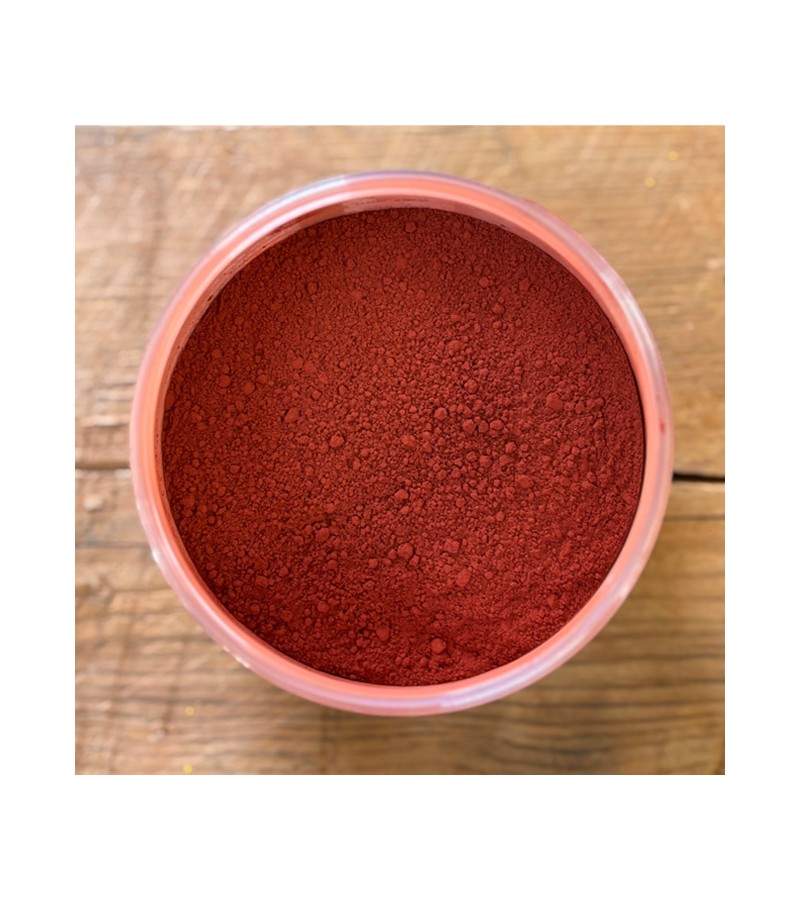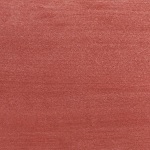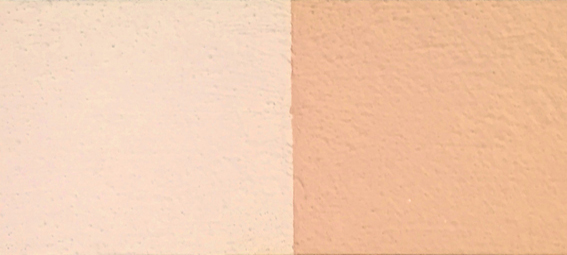




Rouge Vénitien (= red Venitian) is a colouring earth extracted in the region of Veneto (Verona). Known since Antiquity, it is sought after in the artistic and restoration fields.
This pigment is 100% natural.
![]()

Legal notices

Delivery policy

Return policy

Google reviews
Uses : lime paint, lime coating, wax, paint, plaster, fresco, glaze, cement, fine arts, flour paint.
This pigment is in powder. For use in artistic painting, it should be ground finely in a mortar before mixing it with the binder.

Flour paint with rouge Vénitien made by Emmanuelle

Rouge Vénitien mixed with linseed oil
Linseed oil : dissolve the powder in a little bit of turpentine before adding it to the linseed oil.
Water-based paint/fatty lime : dilute the pigment in some water to make it liquid before incorporating it into the paint.
Lime powder/cement/plaster : directly incorporate the pigment (up to 10% based on the weight of the binder), then mix in order to stain all of your binder.
Maximum dosage : The maximum dosage is 10% compared to the binder used. Above 10% it is recommended to incorporate fixators and adjuvant (lime use).

Photo on the left : the pigment is mixed in the Badisof Plus (limewash ready to use which you can find in our deco range) at the rate of 5% so 50g of pigment per kilo of whitewash.
Photo on the right : the pigment is mixed in the Badisof Plus at the rate of 20% so 200g per kilo of whitewash.
These renderings can be similar for any white base mixed with this pigment. However, differences could be possible for the use of paints more or less loaded with titanium dioxide (white pigment), which will give a final color more or less light. If you want to lighten a pigment, before coloring a transparent binder (linseed oil, wax, acryling binder, caparol, flour, etc), you can mix it with blanc Tiona (= white Tiona).
Color : red, reddish-orange with a transparent binder. Pink, a little bit beige with a white binder.
This pigment is 100% natural.
Made in Italy.
History : this colouring earth is extracted in the region of Veneto (Verona). Known since Antiquity, it is sought after in the artistic and restoration fields.
_____________________
Our packaging :
We use recyclable PET jars, to throw away, cleaned, in the yellow bins ; and glass jar that you can clean and sterilize for other uses even for food storage.